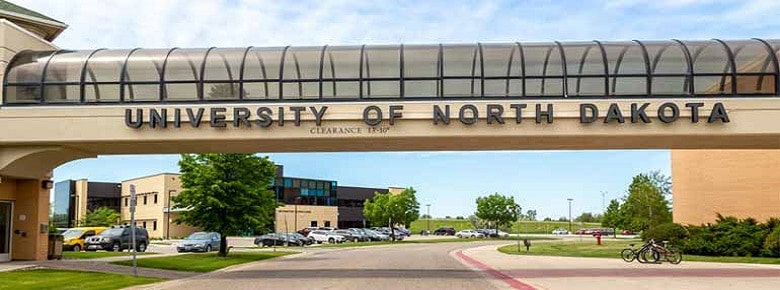If you are interested in going to college but aren’t sure exactly what you want to study, you might consider pursuing a general studies degree online.

Editorial Listing ShortCode:
A bachelor’s degree in general studies is great for many students because it can help them obtain all their basic required classes and a broad overview of many general fields, which should make them more employable.
General Studies Degree Online

There are generally two types of students who choose to work towards a bachelor’s degree in general studies. The first of these is the student who knows he or she wants a degree but isn’t exactly sure what type of degree he or she wants to pursue.
If this sounds like you, a bachelor’s degree in general studies can help ensure you receive a top-notch, well-rounded education and make you more employable without you having to decide on all your future plans right away.
The second type of student is one who simply has interests in far too many things to pick just one. For instance, if you’re the type of student who loves literally every type of literature class there is, wants to run your own business, and thinks higher math is super fun, you might greatly benefit from a general studies degree program.
A general studies degree program can give you the opportunity to take a wide variety of classes to suit your varied interests while also allowing you to earn an actual bachelor’s degree, which can look really good on your resume.

Another great thing about a general studies bachelor’s degree program is that it can help prepare you for a career in many different, seemingly unconnected fields.
The U.S. Bureau of Labor Statistics lists some of the various subjects you can choose from when it comes to putting your degree to work. Some options are social sciences, graphic arts, communication, economics, and literature.
While a general studies program will allow you to design your own curriculum to a certain extent, you’ll likely be required to take many classes in a balanced mixture of math, science, business, communications, and humanities.
This balanced curriculum should help you graduate with exceptional artistic creativity, top-of-the-line analytical and critical thinking skills, a good grasp of all of the core educational classes, and some pretty impressive business, leadership, and management skills.

Your program will likely include classes in English literature, writing, communications, math, science, public speaking, history, diversity, critical thinking, economics, business, and global awareness.
After graduating with this degree, you could potentially be eligible for jobs in a number of fields. A general studies degree can help prepare you to work in market research, business and business management, project management, editing, copywriting, and so much more.
These are just some of the many options that may be available to you after successfully graduating from college with a bachelor’s degree in general studies.
General Studies Curriculum & Courses

In case you’re looking for a more in-depth idea of the types of classes you might be required to take for a general studies degree, we’ve compiled a list of ten of the most common classes.
- English Comp I & II: English composition courses can help you learn how to read for understanding and comprehension and to write and research effectively. You will likely do a lot of writing and read a lot of classic literature in your composition classes. Most colleges require students to take at least two years of composition classes.
- Public Speaking: This course can help you learn how to write up your own speeches, create and present your own presentations, and complete other verbally expressed assignments that are almost always delivered in front of both your teacher and your peers. In this way, they can help you become comfortable speaking in public, conducting meetings, creating and explaining PowerPoint presentations, etc.
- Global Issues: Although it may have a different name, you’ll most likely be required to take at least one class that explores the diversity of the world and the traditions, customs, and governments of other cultures. You’ll likely discuss such important topics as human rights, natural resources, and population control and explore how these issues are dealt with around the world.
- College Algebra or Higher: In a general studies program, students are usually required to take at least six credit hours of mathematics, usually starting at college algebra and moving higher. If your ACT/SAT score or placement test doesn’t show that you’re ready for college algebra or higher, you may be required to take remedial, non-credit math classes until you’re able to move into college algebra.
- Sociology: A sociology course covers the behavior of people in groups (society) and the laws and customs that regulate those people. Many colleges will allow you to substitute psychology in lieu of this course.
- An Art/Humanities Elective: Although you’ll usually be allowed to choose between art, photography, music, theater, band, or another art-related class, you will likely be required to choose at least one, and perhaps two, art courses.
- American Literature I & II: Although you might be allowed to choose a different literature class (English Lit, Southern Lit, World Lit, etc.), it’s very likely you’ll have to take and successfully complete at least two consecutive years of some type of literature.
- Foundations of Business: This course covers the basics of business and business management, including human resources, business marketing, advertising, finances, public relations, and more.
- Economics: You’ll probably take at least one economics course, usually either macroeconomics or microeconomics, to help you learn about money, budgeting, and finance. You’ll probably also learn about how money moves both nationally and globally.
- Biology & Biology Lab: This is a basic, college-level science course. You’ll likely learn about the human body and other pertinent aspects of biology and be required to take a separate lab for additional course credit to supplement your biology course.
These are only ten examples of potentially required core classes. If you choose a concentration, such as criminal justice or communications, you’ll likely take several classes pertaining to those concentrations.
Editorial Listing ShortCode:
General Studies Concentrations and Specialties

Even within a general studies degree, you have the option to choose a concentration, also referred to as a specialty. Students usually choose a concentration in a field they enjoy the most or see themselves working in in the future. Eight of the most popular concentrations are as follows:
- Allied Health: If you hope to one day work in the field of healthcare or healthcare administration, you might choose a concentration in allied health. This specialty could potentially lead to jobs in radiation, speech, occupational or physical therapy, nutrition or dietary services, disease prevention, dental hygiene, or diagnostics.
- Criminology and Criminal Justice: If upholding the law and seeing justice done is more to your tastes, a criminology/criminal justice specialty might be a better fit for you. This concentration may lead to jobs in law-related careers. You might become a police, parole, probation, or corrections officer or even a judge or lawyer if you plan to attend law school after finishing your undergraduate program.
- Communications: A concentration in communications typically covers the history of communications in America, the ethics of communications outlets, and theories of mass media. This particular specialty may lead to communications jobs in any of the following fields: newspaper, internet, television, or radio.
- Computer and Natural Sciences: A concentration in computer science can help ready you for a variety of jobs in the tech/computer field, such as software consultant or computer programmer. A natural science concentration, on the other hand, focuses more on sciences like chemistry, physics, geology, archaeology, and other similar fields.
- General Administration: This concentration can help prepare you for a career in business administration. You may take a broad overview of the business field or focus on specific aspects of business, such as finance or human resources.
- Law Office Administration: This particular concentration is quite similar to the general administration specialty. This one, however, focuses specifically on the administration within law offices and could help prepare you to work in a prison, jail, lawyer’s office, or courthouse.
- Legal Assistant: If you’re interested in working in the office of a lawyer as an administrative assistant or a legal secretary, this specialty can help you reach that goal. In addition to your core educational classes, many classes will likely be focused on the law, legal regulations, and ethics.
- Paralegal: Although the terms are often used interchangeably, a paralegal is not the same thing as a legal assistant. A paralegal concentration can help you learn how to be an assistant (or research assistant) to a lawyer, which includes such tasks as doing legal research, drafting legal documents, and compiling evidence.
The courses you’ll be required to take will vary greatly depending on which of these concentrations, if any, you choose to specialize in while working towards your general studies degree. These aren’t the only concentrations that can be pursued, but they are some of the most popular.
In addition to choosing a specialty in order to work your way into your desired career, you might also choose one of these if you plan on furthering your education in graduate school. For example, if you’re hoping to be accepted into law school, you might want to focus on any of the law- or legal-related concentrations.
If you want to go to med school, on the other hand, you might want to specialize in allied health. The same goes for graduate programs in other fields of study, such as communications, journalism, English, or business administration.
If you have a clear or semi-clear vision of your future, you may want to choose a specialty that reflects that vision.
General Studies Careers & Salaries

Depending on which specialty you choose, or whether you choose one at all, your expected salary after graduating with a general studies degree could vary greatly.
Depending on your interests, according to the Burea of Labor Statistics, these are some of the careers you could pursue with your general studies bachelor’s degree along with their average annual salaries:
| Careers | Annual Median Salary |
| Sales Managers | $132,290 |
| Human Resources Managers | $121,220 |
| Top Executives | $107,680 |
| General and Operations Managers | $103,650 |
| Executive Secretaries or Executive Administrative Assistants | $63,110 |
These are only a few of the potential jobs you might be eligible for after graduating with a general studies bachelor’s degree. As the chart above shows, earning your bachelor’s degree in general studies may also be a lucrative decision.
Accreditation

With a general studies degree, as with any other degree, it is important to ensure you’re earning it from an accredited college or university before you even consider enrolling.
This is just as important when it comes to online universities as it is with on-campus universities, perhaps even more important. Without accreditation, your credits and your degree may mean very little to others.
Regional accreditation is typically regarded as the best type of accreditation. If your college has regional accreditation, it will be easier to transfer your credits to other schools in the United States if you relocate, transfer schools, or go on to graduate school.
Editorial Listing ShortCode:
Furthermore, degrees from regionally accredited universities are more accepted and recognized by employers.
There are seven main agencies that provide regional accreditation in the United States, six of which accredit schools that confer bachelor’s degrees. You can find a list of these agencies and other information you might need to know about regional accreditation by visiting the website of the Database of Accredited Postsecondary Institutions and Programs (DAPIP).
General Studies Professional Organizations

After you’ve earned your bachelor’s degree in general studies, there are a few professional organizations you could potentially apply for membership in. You may not be eligible for or even want to join them all depending on which area of specialty you plan on studying and what profession you go into after graduation.
Whether you become a member of them or not, though, it’s beneficial for you to know of them at least by name. They are as follows:
- American Marketing Association: More commonly referred to as the AMA, the American Marketing Association is an essential association for many who head into the marketing world after earning their degrees. Since 1953, it has shaped the marketing community both nationally and globally, and it also offers many scholarships, grants, and awards to those currently in or hoping to one day work in the field of marketing.
- American Finance Association: According to its website, the American Finance Association (AFA) is the “premier academic organization” dedicated to studying and promoting widespread knowledge about finances and economics. Its main goals are to improve the general public’s understanding of finance and financial difficulties, encourage students to major in finance and assist those that are, and provide networking opportunities to financial professionals. It also publishes the bi-monthly Journal of Finance.
- National Association of Sales Professionals: If your endgame with your general studies bachelor’s degree happens to be in sales, the National Association of Sales Professionals (NASP) may be an excellent professional association for you to join because it was specifically created to help those in sales advance their careers. It offers many resources to help people become certified in many different upper-level sales positions.
- The Sales Association: This may be another excellent resource if you intend to go into sales after earning your degree because it, too, focuses on creating a network for sales and business development professionals by helping them advance in their careers and raising overall profits for the companies in which they work. It accomplishes these goals by providing top-of-the-line educational and training programs, creating numerous networking opportunities, and honoring exceptional members and members’ exceptional accomplishments.
- Association for General and Liberal Studies: Often referred to as simply the AGLS, the Association for General and Liberal Studies is a networking community for “practitioner-scholars” that seeks to be the leading organization for the improvement and enhancement of the everyday work of general education graduates. Members put a premium on contribution, inclusivity, innovation, and collaboration, and the organization as a whole offers awards each year to members who best exemplify these traits.
- Humanities, Arts, Science, and Technology Alliance and Collaboratory: In short, the Humanities, Arts, Science, and Technology Alliance and Collaboratory (HASTAC) is a multidisciplinary community of technologists, scientists, social scientists, artists, and humanists whose collective goal is to improve and advance the learning process itself. It was founded in 2002, has over 16,000 members and over 400 affiliate organizations, and values creative contribution, collaboration, innovation, openness, and diversity in its pursuit to change the way that teachers teach and students learn.
- Association of American Colleges and Universities: Better known as the AACU, the Association of American Colleges and Universities is, according to its own description, “a voice and force for liberal education.” At its core, the AACU’s goals are to improve the overall public perception of general studies and further enhance the employability of graduates of liberal education programs by making general studies curricula rigorous, thorough, and all-encompassing.
Any and all of these professional organizations can help provide you with a vast network of like-minded professionals in your field. These types of organizations may also provide you with training and educational resources to keep your skills as up-to-date as possible.
Many of them even offer paths to certification, which can, in turn, potentially lead to promotions and increased salaries, among other things.
Admissions Requirements for a Bachelor’s in General Studies

Just like with any other degree program, being accepted into a general studies program will require you to apply to a college and meet certain admissions requirements during the application process. From college to college, these admissions requirements may change.
There are a few admissions requirements that are pretty much standard across the board, though. Even colleges with open enrollment or open admissions policies may have some of these same admissions requirements for some programs.
- GPA: Asking students for their grade point averages (GPA) is probably the most common admissions requirement in colleges all across the United States. Often, schools (unless they have open admissions) and specific programs of study have specific GPA requirements for admission into them. Open admissions colleges may not require a certain GPA, but they’ll probably still require that you provide them with your GPA. They do this for many reasons, not least of which is to determine whether or not you’re eligible for any merit-based or talent-based scholarships. For colleges that don’t have open admissions but aren’t super strict about requirements, a pretty standard GPA requirement is about 2.75 unweighted. However, for colleges that are a little more selective, you usually need at least a 3.0 unweighted to be accepted. Finally, for more prestigious, harder-to-get-into colleges, the minimum GPA may be as high as 3.5 unweighted.
- ACT & SAT scores: Although not all schools require specific ACT/SAT scores for admittance anymore, many still require that you submit them in order to see if you qualify for scholarships and where they need to place you in core classes. For those schools that do require a certain ACT/SAT score for admission, the average acceptable score is 21 for the ACT and 1090 for the SAT. You can check your prospective college’s admissions requirements page on their website to see if they require a certain score or not.
- Personal statement: Another popular admissions requirement for most colleges is your personal statement. This is usually given in a short, personal essay you may be required to write. In this essay, you should include information about yourself, why you want to attend college (and this college specifically), what you’ll bring to the college, and what you hope to achieve after graduation. There is no need for modesty when writing this statement. It is important to showcase your achievements and make them want to accept you into their college.
- Letters of recommendation: Many colleges also require that you provide them with a specific number of letters of recommendation, usually between one and three. These can come from former professors, current or former employers, or other people who know you in a professional capacity. Again, it is important to check your college’s admissions requirements page for the exact requirements.
- Transfer credits: Any prospective college will almost always require you to send over any transcripts you have so that they have a history of your academic records. It’s important to check how many of your previous college credits are transferable to your new college as well so that you can avoid retaking classes.
Other colleges may have additional requirements for admission, and a few may not have quite so many. You should be able to check any college’s admissions requirements by visiting the admissions requirements page on the school’s website.
If you have any further questions after visiting the website, you can also usually contact the admissions department at the school directly by phone or email.
Financial Aid & Scholarships

If you need assistance paying for your college education, there are three main sources of financial aid: loans, grants, and scholarships. You can apply for federal loans and a Federal Pell Grant by filling out the Free Application for Federal Student Aid (FAFSA). These have nothing to do with your GPA or standardized test scores.
Editorial Listing ShortCode:
If you fall within a certain income bracket and are in good standing with the U.S. Department of Education, you should qualify for federal loans and the Federal Pell Grant. The loans will have to be repaid, so it is important to only borrow what you need and make a plan for repayment.
You can also apply for other loans from your bank, credit union, or private loan institutions.
The Pell Grant, however, will not have to be repaid as long as you don’t misuse it. In that way, it’s very similar to the third financial aid option: scholarships. You can look on your college’s website to find any scholarships they offer.
Most colleges offer both merit-based scholarships, which are based on your academics, and talent-based scholarships, which are awarded to students with exceptional talents in dancing, singing, acting, sports, etc. You can also find other scholarships on dedicated scholarship websites.

What Is a Bachelor of General Studies?
A bachelor of general studies degree is a regular, typically 120-credit-hour bachelor’s degree, only it isn’t in a specific field of study. A general studies degree program is typically quite similar to a traditional liberal arts program, but a general studies degree is considered a “multidisciplinary” degree because the knowledge base obtained in the program is so varied and all-encompassing.
A general studies curriculum usually includes classes in English, literature, math, the sciences, the arts, technology, and business. This degree can help to equip you with the knowledge you’ll need to work in many diverse fields after graduation.
It should also provide you with everything you’d need to move on to graduate school after earning your bachelor’s degree if that’s the path you choose.
What Can I Do with a General Studies Degree?
A general studies degree is an excellent degree for many because it gives access to so many different types of careers after graduation. Because the courses in the curriculum are so diverse, students can learn about a variety of different subjects and, subsequently, may be able to hold successful careers in a wide variety of different fields.
In addition to careers in marketing, sales, and business, this degree may also lead you into more specialized paths. You might become a software consultant, social worker, copywriter, editor, market research analyst, public relations specialist/manager/director, bank teller, administrative assistant, research assistant, case manager, or content writer.
These are just some of the possibilities. It’s an incredibly versatile degree.

What Is a General Studies Degree?
A general studies degree is also often referred to as a multidisciplinary degree, an interdisciplinary studies degree, or a liberal arts degree. Despite what you call it, they all mean practically the same thing.
With a general studies degree, you should receive an all-encompassing, well-rounded, and balanced education that covers many different subjects. If you have a somewhat clear picture of what you want to do, you may focus most of your classes around one or two different subject areas. However, this isn’t strictly required.
To put it simply, a general studies degree is an interdisciplinary or multidisciplinary degree you earn without declaring a specific major. You can get a traditional or online general studies associate’s degree, bachelor’s degree, or even a master’s degree at a few select schools. As long as they are from an accredited university, they should hold the same amount of weight as any other, major-specific degree.
Is a General Studies Degree Worth It?
If you have a strong desire and an unshakable plan concerning what you want to do with your life in the future, then your best course of action is probably to major in something that relates to that career field.
If you aren’t sure what you want to do or have many different interests and don’t want to have to narrow your focus, then yes, a general studies degree may be worth it. It may actually be really amazing for you.
The US Bureau of Labor Statistics projects that jobs requiring a bachelor’s degree for entry will grow at a rate of 6% for the next decade, faster than the average for all occupations. In addition to potentially being paid more after receiving your degree, a general studies degree may also make you more employable.
With a general studies degree, you may take many classes in business management, writing and composition, public speaking, human resources, public relations, and more.
These classes can help make you a well-rounded employee that can effectively do many things within an organization, making you an asset to the team.

What Can I Do After Earning a General Studies Degree?
Whether your future plans include going straight into the workforce or heading off to law school, medical school, or any other graduate school after finishing college, a general studies degree can help get you there.
Editorial Listing ShortCode:
If you want to go the graduate school route, there are many different programs of study you may pursue after earning your bachelor’s in general studies. You could potentially enter any of the following programs:
- Communications
- Marketing
- English
- Business
- Literature and Composition
- Social Science
- Human Resources
These are only some of the programs for which you could be eligible. Law school and medical school are also popular options. If you want to go straight into the workforce after earning your bachelor’s degree, you could potentially be hired into positions in any of those above-listed fields and more.
Can You Do General Studies Online?
There are several online colleges that offer associate and bachelor’s degrees in general studies. There are also plenty of on-campus colleges that offer online distance learning programs in general studies as well. It’s actually one of the more popular options for online degree programs.
The important thing to remember is to check the accreditation of the school you enroll in. Accreditation is vital whether you’re attending an on-campus or online college or university. Without it, your degree may not be worth your time and effort. You can check the accreditation status of any school by checking out its website. Regional accreditation is considered the best and most recognized by schools and employers.

Is a General Studies Degree Worth It?
Yes, a general studies degree is worth it for many students, especially for those that are able to use financial aid such as Pell Grants and scholarships to pay for all or most of their education.
Even for those that can’t, the degree is often still worth it because of its potential to increase job opportunities. The Bureau of Labor Statistics projects job growth of 6% over the next 10 years for jobs requiring a minimum of a bachelor’s degree for entry. That is faster than the average for all occupations.
The classes taken in a general studies degree program are varied and provide comprehensive knowledge of numerous aspects of communication, writing, finance, and business, as well as many other general core subjects, such as math, science, and history. This means graduates with this degree often have a wide range of different skills that can make them more appealing to potential employers.
Can I Transfer with a General Studies Degree?
As long as you are earning your college credits and/or general studies degree at a regionally accredited university, you will probably be able to transfer your credits and the degree itself to any other college in the United States.
Regional accreditation is the most widely accepted form of accreditation, and most colleges and universities recognize credits earned at a regionally accredited institution.
If you have to take remedial or non-credit classes for any reason, those classes probably won’t be transferable. They will usually suffice for remedial classes, though, meaning you shouldn’t have to re-take those same remedial classes at your new college as long as you passed them at the original college.

How Long Does It Take to Get a General Studies Degree?
An associate’s in general studies usually takes approximately 60 credit hours to earn. A bachelor’s degree usually requires about 120 credit hours.
The length of time it takes to finish your degree will depend on a number of factors, including whether or not you’re a full-time student, take summer classes, or enter into an accelerated program.
What Jobs Can I Get with a General Studies Degree?
Because a general studies degree is designed to provide you with a wide variety of classes in different fields, the job options you have after earning the degree can vary greatly and may seem to have little in common with one another.
You might become a social worker, software consultant, sales director, public relations director, communications director, administrative assistant, caseworker, content writer, copywriter, editor, auditor, bank teller, branch manager, research assistant, or hotel manager. These are just some of the possibilities.
Universities Offering General Studies Online Bachelor’s Degree Programs
Methodology: The following school list is in alphabetical order. To be included, a college or university must be regionally accredited and offer degree programs online or in a hybrid format.

Not only does Arkansas State University offer a variety of undergraduate and graduate degrees, and it has also been assisting the economy since it opened in 1909. As a comprehensive, public research university, ASU employs thousands of people in order to provide high-quality education through distance learning and on-campus programs.
- Bachelor of General Studies
Arkansas State University is accredited by the Higher Learning Commission of the North Central Association.

Opened in 1918, Ball State University sets the standard for higher education by providing hands-on, research-based curriculums to students enrolled in their many programs.
Offering associate, undergraduate, and graduate degrees, Ball State University strives to give students the experience and credentials needed for career and personal advancement.
- Bachelor of General Studies
BSU is accredited by Higher Learning Commission.

Dakota State University began providing public education in 1881. With both campus learning and online classes available, DSU is able to go beyond the industry standard to provide high-quality academics.
DSU grants associate, bachelor’s, and graduate degrees in a variety of academic disciplines. Some programs at DSU include General Studies, Business, and Cybersecurity.
- Bachelor’s in General Studies
Dakota State University is accredited by the Higher Learning Commission.

Drexel University takes private education to the next level by bringing innovation and technology into each of its undergraduate, graduate, and doctoral degree programs. Students at Drexel University have access to a variety of work-study programs and study abroad options.
DU has been serving students since 1891. General Studies and Education are a couple of the programs offered at DU.
- BS in General Studies – Business
- BS in General Studies – Client Development and Customer Service
- BS in General Studies – Individualized Studies
Drexel University is regionally accredited by the Middle States Commission on Higher Education.

Drury University is more than a private liberal arts school. It is a small community of professionals working together to help every person gain higher education. More than 5,000 students seeking bachelor’s or graduate degrees attend DU annually.
Drury University has a vibrant campus with many student activities and an online learning platform for flexible learning options.
- Bachelor of General Studies
Drury University is accredited by Higher Learning Commission.

Eastern Kentucky University was founded in 1974. Today, Eastern Kentucky University has thousands of students that attend courses both online and in person. Students looking to attend a public school with affordable tuition rates often turn to EKU to earn associate, bachelor’s, or graduate degrees.
- Bachelor’s in General Studies
Eastern Kentucky University is accredited by the Southern Association of Colleges and Schools Commission on Colleges.

With more than 140 academic majors to choose from, Georgia Southern University aids students in more than 80 countries in obtaining educational and career growth.
Georgia Southern University strives to provide a ground-breaking curriculum in each of its undergraduate, graduate, and doctoral degree programs. Popular programs include General Studies, Science, and Technology.
- Bachelor of Interdisciplinary Studies
Georgia Southern University is accredited by the Southern Association of Colleges and Schools Commission on Colleges.

Hampton University opened in 1868, just after the Civil War, and is a private historically black university. This world-renowned, research learning facility strives to provide high-quality education, character-building programs, and professional credentials to thousands of students each year.
Hampton University has a variety of undergraduate, graduate, and doctoral degree programs.
- BA in General Studies
Hampton University is accredited by the Southern Association of Colleges and Schools Commission on Colleges.

Lindenwood University began in 1827 and is now one of the region’s most longstanding private institutions. Lindenwood University students can attend online, evening, weekend, and traditional classes as they progress in earning undergraduate or graduate degrees.
Lindenwood has a variety of programs that include General Studies, Technology, Business, and Health Care.
- BA in Interdisciplinary Studies
Lindenwood University is accredited by the Higher Learning Commission.

Opened in 1939, McNeese State University is one of a few colleges located in Lake Charles, Louisiana.
Offering associate, bachelor’s, and master’s degrees and professional certificates in over fifty majors, McNeese State University serves students in various countries around the world through distance learning, campuses, and learning centers.
- Bachelor of General Studies – Interdisciplinary Studies
McNeese State University is accredited by the Southern Association of Colleges and Schools Commission on Colleges.

Established in 1875, Medaille College is located in Buffalo, New York, and offers a number of undergraduate and graduate programs with a liberal arts foundation. Striving to meet the needs of its students and surrounding community, this public education institution encourages students to participate in volunteerism and programs that help the local area.
- BS in General Studies
Medaille College is accredited by the Middle States Commission on Higher Education.

Minot State University strives to bring a worldview curriculum to each undergraduate and graduate degree program it offers. With an array of program majors, Minot State’s majors are full of practical applications and technology to give students a diverse learning experience. This public facility was started in 1913 in North Dakota.
- Bachelor of General Studies
Minot State University is fully accredited by the Higher Learning Commission.

Northern State University began in 1901 as a public learning entity and now has more than 35 major academic fields.
With more than 23 undergraduate, graduate, and professional degree programs, NSU keeps class sizes low and academic standards high. Some of the programs offered at Northern State University include General Studies, Education, Math, and Business.
- Bachelor of General Studies
Northern State University is accredited by the Higher Learning Commission.

Natchitoches, Louisiana, is home to the Northwestern State University of Louisiana, which started in 1884 and is now one of the area’s most extensive public learning facilities.
With more than 50 academic majors to choose from, students at NSU can obtain undergraduate and graduate degrees on campus or through distance learning. NSU is known as a military-friendly school.
- Bachelor of General Studies
Northwestern State University is accredited by the Southern Association of Colleges and Schools Commission on Colleges.

Saint Louis University began in 1818 as a private, Catholic learning institution. Today, it serves students from areas around the globe. With over 200 undergraduate and graduate programs to choose from, Saint Louis University has a variety of degree programs that can be obtained through distance learning education.
- BA in General Studies
Saint Louis University is fully accredited by the Higher Learning Commission.

Founded in 1873, Southeast Missouri State University has been educating students for over 145 years. Offering both on-campus and virtual learning, Southeast Missouri State University is a public school that has a vibrant array of undergraduate and graduate degrees. Popular programs at SMSU include Education, Health Care, and General Studies.
- Bachelor of General Studies
Southeast Missouri State University is fully accredited by the Higher Learning Commission.

Every year, thousands of students attend Southern New Hampshire University and have the opportunity to partake in more than 200 academic majors and minors. This private educational institution is considered by many to be a global powerhouse and excels in online and campus-based instruction.
Students at SNHU have the ability to earn associate, bachelor’s, and graduate degrees.
- BA in General Studies
Southern New Hampshire University is accredited by the New England Commission of Higher Education, Inc.

Opened in 1897 as a school for teachers, Southern Utah University is a public university that serves both online and traditional-based learners. It has more than 100 associate, bachelor’s, and master’s degree programs and serves thousands of students across the globe.
A sample of programs offered at SUU includes Education, General Studies, Science, and Technology.
- BA in General Studies
- BS in General Studies
Southern Utah University is accredited by the Northwest Commission on Colleges and Universities.

Opened in 1923, Texas Tech University is a significant force in the public academic community. Reaching students across the globe, Texas Tech has more students than any other school in the US and grants undergraduate, graduate, and doctorate degrees in over a hundred academic areas. Research and innovation are vital concepts at TTU.
- Bachelor of General Studies
Texas Tech University is accredited by the Southern Association of Colleges and Schools Commission on Colleges.

The University of Missouri opened in 1839 as the first public research university west of the Mississippi. Beginning as a land- and space-grant, UM assists students in obtaining professional and personal achievements by offering an assortment of undergraduate, graduate, and doctoral degrees.
Some programs accessible through UM include Nuclear Medicine and General Studies.
- Bachelor of General Studies
The University of Missouri is accredited by the Higher Learning Commission.

The University of North Dakota began in 1883, before North Dakota was even a state, and has been providing a vigorous public education ever since. Working to continually change and grow to meet the needs of a changing society, the University of North Dakota has undergraduate and graduate degree paths that are grounded in research and technology.
- Bachelor of General Studies
The University of North Dakota is regionally accredited by the Higher Learning Commission.

The University of South Dakota is a public research facility with world-class academics and campus locations. Opened in 1862, the University of South Dakota has taken pride in its ability to provide personal service to thousands of students as they help them achieve academic success through the obtainment of undergraduate, graduate, or doctoral degrees.
- Bachelor of General Studies
The University of South Dakota is accredited by the Higher Learning Commission.

Located in Webster Groves, Missouri, Webster University commenced in 1915. Today, Webster is able to meet the needs of students worldwide through its distance learning and campus-based programs.
Webster University has many routes for students to gain undergraduate and graduate degrees. With more than 9,000 students annually, WU has over 150,000 alumni.
- BA in General Studies
Webster University is accredited by the Higher Learning Commission.

Western Illinois University has been encouraging students to build up their communities and positively serve others since 1899. This public university ranks high among research-based programs that allow students to participate in hands-on learning while earning undergraduate, master’s, or doctoral degrees and is named as one of the best in the Midwest (U.S. News & World Report).
It has over 100 academic areas and certification programs to choose from.
- BA in General Studies
Western Illinois University is accredited by the Higher Learning Commission.

Home to the WuShock since 1865, Wichita State University has over 200 academic programs throughout six colleges and serves thousands of students each year. WSU is a public research school that ranks high in academics and program options (U.S. News & World Report).
Known as one of the most inexpensive public universities, WSU helps students obtain undergraduate, graduate, and doctoral degrees.
- Bachelor of General Studies
Wichita State is accredited by the Higher Learning Commission of the North Central Association of Colleges and Schools.
Getting Your General Studies Degree Online

The question now is this: Should you pursue your general studies degree online? If you’re interested in getting a well-rounded, solid education that can help you appear more appealing to employers and potentially earn you more money, then yes, earning your general studies bachelor’s degree may be a great first step for you.
There are numerous potential advantages to earning this degree. There may also be many different scholarships and other forms of financial aid out there to help you earn it without costing you a ton of money.
Taking the program online is usually incredibly convenient and can allow you to work somewhat at your own pace and on your own schedule, which is perfect if you have a full-time job, children, or other responsibilities.
What about graduate school? Many students wonder what masters degree they can get with a bachelors in general studies.
With a bachelor’s in general studies, you can choose to continue your path in general studies and enroll in a Master of Liberal Arts or similar interdisciplinary program, or you may choose to specialize in a specific area of study for your master’s education.
All of this means that there may never have been a better time to earn your general studies degree online, and it could potentially lead to some really great things in your future. You don’t have to wait any longer. You can take that first step towards earning your degree today.

